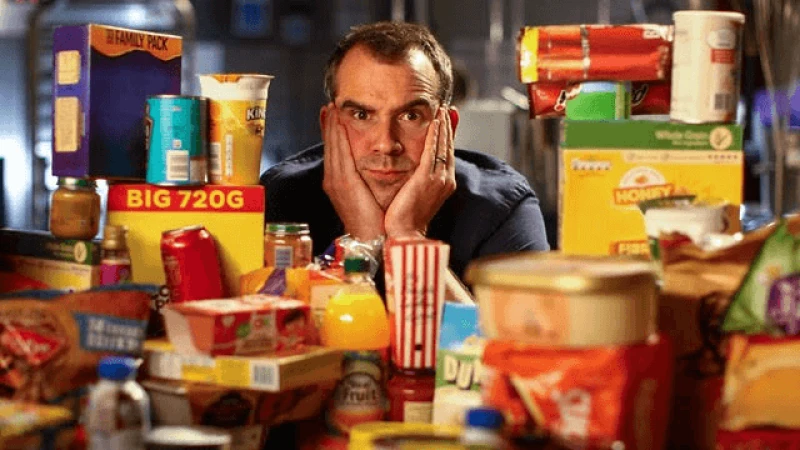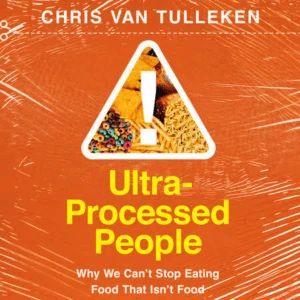Viewpoint: Why much of what you’ve read about the health dangers of ultra-processed foods is wrong
Viewpoint: Why much of what you’ve read about the health dangers of ultra-processed foods is wrong


The selling point of books like Ultra-Processed People is the idea that everything you know is wrong. [Chris] Van Tulleken, an infectious diseases doctor and television presenter, takes this to extremes. In this book, almost everybody is wrong, many of them are corrupt and almost no one is to be trusted. Only Dr. van Tulleken, a handful of researchers and anyone who pays £25 to read this book knows the real truth. The problem is not sugar. The problem is not carbs. Artificial sweeteners don’t work. Exercise doesn’t work. Willpower doesn’t work. Every scientist who has published research contradicting his theory is in the pay of the food industry or — how’s this for an ad hominem argument? — has cited studies by people who are.

It is this ultra-processed food (UPF), argues van Tulleken, that is the real cause of obesity and diet-related diseases in the world today. Food is classified as UPF if it is wrapped in plastic and contains an ingredient you don’t have in your kitchen. This includes everything from mustard to Magnums but, counter-intuitively, doesn’t include sugar, salt or fat.
…
What is the effect of processing anyway? That is the key question and Ultra-Processed People never adequately answers it. If, as van Tulleken argues, the issue is not about specific nutrients and it is not about food being high in calories per se, there must be something else going on. He asserts, rather contentiously, that a £10 pizza from his local pizzeria is “not associated with obesity or diet-related diseases” but a cheap UPF pizza is.
Both pizzas have roughly the same number of calories, fat, salt and sugar. But one is a traditional food not associated with obesity or diet-related, while the other isn’t.
….
It is not a scientific argument and the whole UPF craze is a backwards step for science. At the practical level, it bluntens the tools of observational epidemiology by constructing a huge category of food to be studied as if it were a single risk factor. More broadly, it creates mistrust of science by treating “chemicals” as inherently suspicious and, as we shall see in parts two of this review, by portraying thousands of scientists as corrupt.
This is an excerpt. Read the original post here

 | Videos | More... |

Video: Nuclear energy will destroy us? Global warming is an existential threat? Chemicals are massacring bees? Donate to the Green Industrial Complex!
 | Bees & Pollinators | More... |

GLP podcast: Science journalism is a mess. Here’s how to fix it

Mosquito massacre: Can we safely tackle malaria with a CRISPR gene drive?

Are we facing an ‘Insect Apocalypse’ caused by ‘intensive, industrial’ farming and agricultural chemicals? The media say yes; Science says ‘no’
 | Infographics | More... |

Infographic: Global regulatory and health research agencies on whether glyphosate causes cancer
 | GMO FAQs | More... |

Why is there controversy over GMO foods but not GMO drugs?

How are GMOs labeled around the world?

How does genetic engineering differ from conventional breeding?
 | GLP Profiles | More... |

Alex Jones: Right-wing conspiracy theorist stokes fear of GMOs, pesticides to sell ‘health supplements’




 Viewpoint — Fact checking MAHA mythmakers: How wellness influencers and RFK, Jr. undermine American science and health
Viewpoint — Fact checking MAHA mythmakers: How wellness influencers and RFK, Jr. undermine American science and health Viewpoint: Video — Big Solar is gobbling up productive agricultural land and hurting farmers yet providing little energy or sustainabilty gains
Viewpoint: Video — Big Solar is gobbling up productive agricultural land and hurting farmers yet providing little energy or sustainabilty gains Fighting deforestation with CO2: Biotechnology breakthrough creates sustainable palm oil alternative for cosmetics
Fighting deforestation with CO2: Biotechnology breakthrough creates sustainable palm oil alternative for cosmetics Trust issues: What happens when therapists use ChatGPT?
Trust issues: What happens when therapists use ChatGPT? California, Washington, Oregon forge immunization alliance to safeguard vaccine access against federal undermining
California, Washington, Oregon forge immunization alliance to safeguard vaccine access against federal undermining 30-year-old tomato line shows genetic resistance to devastating virus
30-year-old tomato line shows genetic resistance to devastating virus The free-range chicken dilemma: Better for birds, but with substantial costs
The free-range chicken dilemma: Better for birds, but with substantial costs ‘You have to treat the brain first’: Rethinking chronic pain with Sanjay Gupta
‘You have to treat the brain first’: Rethinking chronic pain with Sanjay Gupta
